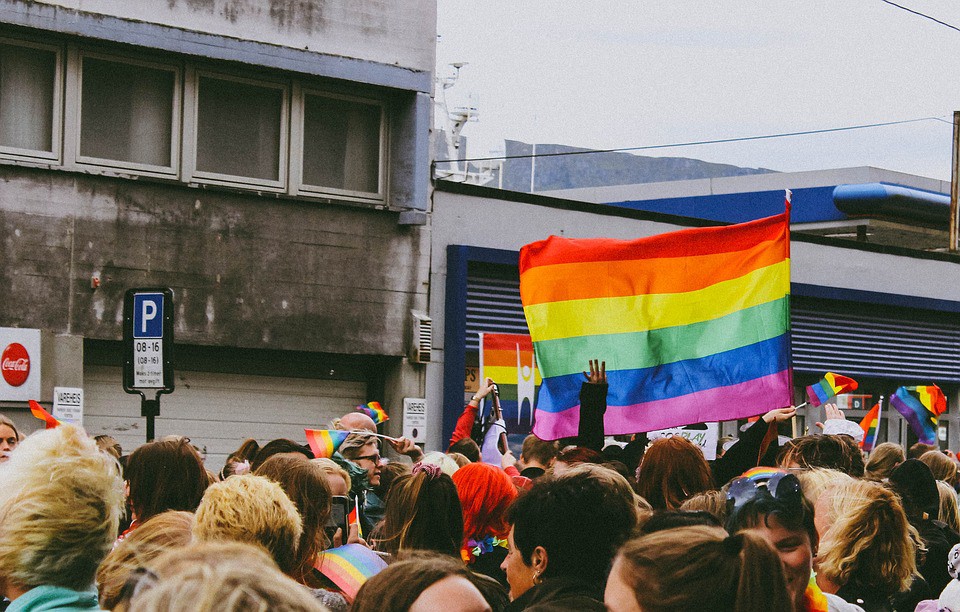Insights
Fifty Years on from Stonewall, How Far We’ve Come Depends on Your Perspective.

This month marks the 50th anniversary of the Stonewall riots in New York City. It’s easy to understand why this seminal moment of both struggle and progress for the LGBTQ community was chosen as the focal point for National Pride Month, which we now observe annually in June. But as our historical distance from events like Stonewall grows each year, it’s important that we continue to appreciate and learn from the experiences of those who have continued to fight for equality and understanding in the decades since.
Much of the attention devoted to Stonewall focuses on the violence and intimidation that the LGBTQ community has worked to overcome, but the push for acceptance in the workplace is just as important a thread in the narrative. I had this on my mind when I joined a panel at StartOut’sCongressional Summit on LGBTQ Innovation recently. It’s both empowering and deeply personal to talk about how my own experiences as a gay man have influenced my career, and the value I’ve found in supporting organizations like the Victory Fund (disclaimer/shameless self-plug: I am a Victory Fund board member) to try and hand down a better world to the next generation. I’m glad to get opportunities like these to do it and hopefully provide some helpful perspective for others.
I’m humbled to hear the stories of those who came before me who embarked on careers at a time when the very thought of being out at work meant career suicide. These perspectives are a powerful reminder of how easy it can be to take the gains that we have made for granted.
Being among the first to break the “rainbow ceiling” came with many risks, both professional and personal, and it makes me respect the courage and determination these men and women needed to have all the more. They are role models for us all.
It’s worth reflecting on the power these role models have to effect change. Simply by living open and honest lives as LGBTQ individuals, they’ve introduced many of us to the idea that we could do the same. They made a statement — one that many of us have desperately needed to hear at certain points in our lives — that no one’s dreams or the impact they can have on the world should be limited by their sexual orientation. Their efforts were a key part of recasting LGTBQ rights as a civil rights consideration and reshaping public perception of the LGBTQ community.
Millions of people in the LGBTQ community were directly influenced by these examples. This had a host of second and third-order effects, where more of us felt empowered to live openly in every aspect of our lives. More people across the country and the world got to know the LGBTQ people in their lives and in their own families and were more easily able to appreciate the human side of decades of discrimination and struggle. It was almost a sort of “chain reaction” of increasing public exposure and acceptance that helps explain the rapid pace at which both legal protections for LGBTQ individuals and social acceptance of the LGBTQ community have advanced in the past few decades in just the past 15 years.
As with so many civil rights movements, progress can be frustratingly uneven. Resounding victories that vindicate years of work are tempered by stultifying setbacks. Case in point: much of corporate America has made a dramatic about-face in its approach to accommodating LGBTQ employees and the LGBTQ community. Far from the open hostility of the past, there’s a collective enthusiasm for not just protecting but celebrating our role in the workplace and in the world. And in the political sphere, the appearance on the scene of Mayor Pete Buttigieg, one of the first openly gay candidates for president aiming for a major party’s nomination (and whose campaign I have been fortunate to get the opportunity to volunteer on and provide support), represents a remarkable step forward for LGBTQ representation in some of the most important parts of our society.
But these advances come hand in hand with continuing challenges. Despite the good work being done by many individual employers, there are still no broadly defined federal protections for LGBTQ employees in the workplace. Several states and cities have stepped in to fill this gap, but in 26 states, it is still legal for an employer to fire an employee for being LGBTQ. Recall as well the so-called “Bathroom Bill” in North Carolina in 2016, which would have forced transgender individuals to use only the restroom facilities that correspond to the sex identified on their birth certificates. The measure was ultimately defeated, but not before stirring up a particularly ugly political debate across the country and engendering a high-profile boycott of the state by the NCAA (which imperiled the state’s chances of hosting future college basketball tournaments).
Two steps forward, one step…sideways? That may be a funny way to reflect on Stonewall and National Pride Month, but it feels fair when there is much work that remains to be done and more that we can push for every day to continue the march toward equality. It’s easy to want to rest on the laurels of major victories like the Supreme Court decision in Obergefell. Yet, harder at times to find the determination to keep up the pressure on remaining areas where LGBTQ rights are still lacking or even openly in danger of being rolled back. But as those men and women who pushed back during Stonewall can attest (as can all those who followed in their footsteps), progress doesn’t happen on its own. It’s the result of a sustained, focused effort to show the world that something different — something better — is possible.